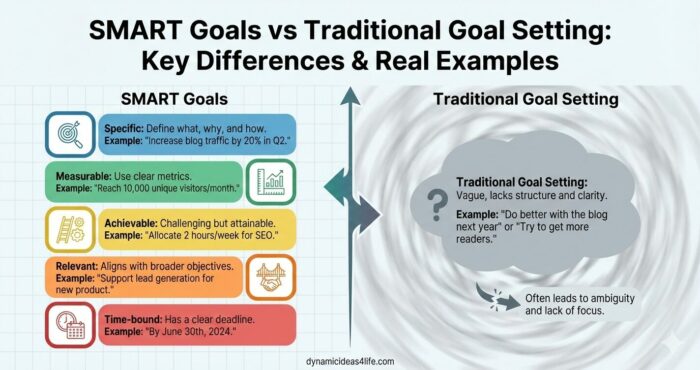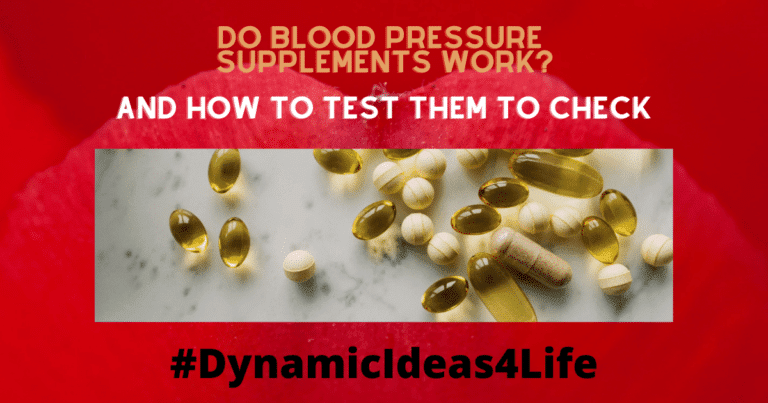
Cinnamon for Blood Sugar — now that’s an interesting topic. If you’ve ever checked the ingredients list on popular blood sugar supplements, you’ve probably noticed Cinnamon right there near the top.
And it’s no coincidence. For centuries, this humble spice has been prized not only for its sweet, warming flavour but also for its powerful health benefits. Long before modern medicine, ancient civilizations used Cinnamon as a natural remedy for various ailments.
So, could Cinnamon really help regulate blood sugar?
Let’s take a closer look at the science, the history, and some practical ways to use this fascinating spice in your daily routine.
Cinnamon for Blood Sugar: Natural Benefits Explained!

Cinnamon’s story stretches back thousands of years — all the way to around 2000 BC. Traded along the ancient spice routes from Sri Lanka to Egypt, this aromatic bark was worth its weight in gold.
- In Ancient Egypt, it was used in mummification and sacred rituals.
- In Rome, it symbolized wealth and status.
- In Traditional Chinese and Ayurvedic medicine, it was valued for its warming properties and ability to “balance energy.”
By the Middle Ages, Cinnamon had reached Europe, where it was used to preserve food, treat colds, and flavour desserts.
Fast-forward to today — Cinnamon remains one of the world’s most popular and best-researched spices. So, let’s take a look at this…
🧂 Cassia vs. Ceylon: What’s the Difference?

Not all Cinnamon is the same. The two main types you’ll find are:
- Cassia Cinnamon (Cinnamomum cassia):
Commonly found in supermarkets. It’s bold, spicy, and cheaper — but it contains higher levels of coumarin, a compound that can affect the liver in large amounts. - Ceylon Cinnamon (Cinnamomum verum):
Often called “true cinnamon.” It has a lighter, sweeter flavor and a much lower coumarin content. Ceylon is the better choice for daily use and long-term health.
If you plan to make Cinnamon part of your regular routine, Ceylon cinnamon is your best bet.
🔬 Cinnamon’s Role in Blood Sugar Regulation
Now let’s get into the science. Cinnamon isn’t just tasty — it contains bioactive compounds like cinnamaldehyde, cinnamic acid, and procyanidins that may help regulate blood sugar and improve insulin sensitivity.
Here’s what research suggests:
- A 2013 review in the Annals of Family Medicine found that cinnamon supplementation lowered fasting blood glucose levels by an average of 24 mg/dL in people with Type 2 diabetes.
- A meta-analysis in Diabetic Medicine reported that cinnamon might modestly reduce HbA1c levels — a key marker of long-term blood sugar control.
- Animal studies show cinnamon can mimic insulin’s action, helping glucose enter cells more efficiently.
🧠 How It Works
- Improves insulin sensitivity: Cinnamon helps your cells respond better to insulin.
- Reduces post-meal blood sugar spikes: It may slow carbohydrate digestion, resulting in steadier blood sugar. [R]
- Boosts glucose uptake: Certain compounds activate enzymes that transport glucose into cells.
So while it’s not a miracle cure, cinnamon can be a valuable complement to a healthy lifestyle and medical treatment plan for managing blood sugar.
❤️ Beyond Blood Sugar: Other Health Benefits of Cinnamon
Cinnamon’s benefits go far beyond glucose control. This multitasking spice supports many aspects of health:
1. Rich in Antioxidants
Cinnamon ranks among the top spices for antioxidant content, helping neutralize free radicals that contribute to aging and chronic disease.
2. Fights Inflammation
Studies show that cinnamon’s polyphenols can help lower inflammatory markers like CRP (C-reactive protein), supporting joint and heart health.
3. Supports Heart Health
Some research suggests cinnamon may help reduce LDL (“bad”) cholesterol and triglycerides while maintaining or slightly increasing HDL (“good”) cholesterol.
4. Boosts Digestion
Traditionally, cinnamon has been used to relieve bloating, nausea, and mild indigestion. Its warming nature helps stimulate digestive enzymes.
5. Antimicrobial Properties
Cinnamon oil and extract have been shown to fight bacteria and fungi — even some that cause food spoilage or infections.
6. May Help with Weight Management
By improving Insulin Sensitivity and blood sugar control, Cinnamon might indirectly help manage appetite and sugar cravings.
🍽️ How to Incorporate Cinnamon into Your Daily Routine
Bringing cinnamon into your daily life is easy and enjoyable. Here are some simple, practical ideas:
☕ In Beverages
- Add ½ tsp of ground cinnamon to your morning coffee or tea.
- Stir it into warm milk with a touch of honey for a soothing bedtime drink.
- Try cinnamon-infused water — simply steep a cinnamon stick overnight.
🥣 In Meals
- Sprinkle on oatmeal, cereal, or Greek yogurt.
- Mix into protein shakes or smoothies.
- Add to curries, roasted vegetables, or even baked sweet potatoes.
🍪 In Baking
- Combine cinnamon with oats, nuts, or apples for healthy homemade snacks.
- Try cinnamon-spiced banana bread or sugar-free muffins for a blood-sugar-friendly treat.
💡 Pro tip: Combine cinnamon with other blood-sugar-friendly ingredients like turmeric, ginger, or apple cider vinegar for an extra health boost.
⚖️ How Much Cinnamon Should You Take?
Most studies use between 1 g and 6 g per day — roughly ½ to 2 teaspoons of ground cinnamon.
Start small (¼–½ teaspoon) and work your way up. Consistency is key — small amounts daily are better than large doses occasionally.
If you prefer supplements, look for standardized Ceylon cinnamon capsules and always follow dosage instructions on the label.
⚠️ Safety, Side Effects, and Precautions
Cinnamon is generally safe when used in moderation, but there are a few things to keep in mind:
- Cassia cinnamon contains coumarin, which can cause liver issues in high doses. Stick to Ceylon for regular use.
- Medication interactions: Cinnamon can enhance the effects of blood sugar–lowering drugs (like metformin or insulin) and anticoagulants (like warfarin).
- Allergies: Rarely, some people may experience skin or mouth irritation.
- Pregnancy: Large doses are not recommended during pregnancy.
👉 Always check with your healthcare provider before starting any new supplement — especially if you have diabetes, liver problems, or are taking medication.
🧘 Lifestyle Synergy: Pairing Cinnamon with Healthy Habits
Cinnamon works best as part of a holistic routine:
- Eat a balanced diet rich in fiber, vegetables, and lean proteins.
- Exercise regularly to improve insulin sensitivity.
- Manage stress, since cortisol can raise blood sugar levels.
- Stay hydrated and get enough sleep — your metabolism depends on it.
When combined with these habits, cinnamon can be a small but powerful addition to your wellness toolkit.
Final Thoughts: Is Cinnamon Good for Blood Sugar?
Cinnamon isn’t just a warming spice for your morning oats or coffee — it’s a natural powerhouse for blood sugar support. Many studies suggest that regular use of cinnamon, especially Ceylon cinnamon, may help your body manage glucose levels more effectively by improving insulin sensitivity and slowing the absorption of sugar after meals.
While cinnamon alone isn’t a cure for diabetes, adding it to a balanced diet can be a simple and tasty step toward better metabolic health. Whether sprinkled on porridge, stirred into tea, or taken as a supplement, cinnamon offers a safe, affordable, and delicious way to support your wellbeing naturally.
As always, it’s best to talk to your doctor before making any major changes to your diet or supplement routine — especially if you’re already taking medication for blood sugar control. But if you’re looking for a natural way to add some extra balance to your blood sugar, cinnamon might be the perfect spice to start with!
Have you tried using cinnamon for blood sugar control? Share your thoughts or experiences in the comments below — we’d love to hear from you!
⚠️ Disclaimer
This article is for informational purposes only and does not constitute medical advice. Always consult your healthcare provider before making any changes to your diet, medications, or supplement routine.
📚 References & Further Reading
- Allen RW et al. (2013). Cinnamon Use in Type 2 Diabetes: An Updated Meta-Analysis of Randomized Controlled Trials.
Annals of Family Medicine, 11(5):452–459.
https://doi.org/10.1370/afm.1517 - Akilen R et al. (2012). Cinnamon in Glycaemic Control in Type 2 Diabetes: A Systematic Review and Meta-Analysis.
Diabetic Medicine, 29(12):1480–1492.
https://doi.org/10.1111/j.1464-5491.2012.03718.x - Ranasinghe P et al. (2013). Effects of Cinnamomum zeylanicum (Ceylon Cinnamon) on Blood Glucose and Lipids in a Diabetic Population.
BMC Complementary and Alternative Medicine, 13:275.
https://doi.org/10.1186/1472-6882-13-275 - National Center for Complementary and Integrative Health (NCCIH). Cinnamon: What You Need to Know.
https://www.nccih.nih.gov/health/cinnamon - Cleveland Clinic (2022). Can Cinnamon Help Lower Blood Sugar?
https://health.clevelandclinic.org/can-cinnamon-help-lower-blood-sugar






Anxiety and Depression BiOptimizers blood pressure supplements blood sugar control blood sugar support supplements cognitive function digestive enzymes Digestive Enzymes Supplement digital products Dr Sam Robbins Gut Health Gut Health While Travelling Health Tips for Travelling Healthy Living heart health HFL how to lower blood sugar levels How To Lower Cholesterol insulin resistance joint health supplement Keto keto dieting Keto Diet Weight Loss leaky gut supplements leptin resistance Magnesium deficiency Matt Gallant mental health multivitamins Nootopia Nootropics Probiotics Probiotic Supplements reverse type 2 diabetes stress and anxiety stress relief Supplements vitabalance vitapost Wade Lightheart weight loss articles weight loss diet plans weight loss product reviews weight loss supplements weight loss tea




